
 This morning I woke up in a panic because I could no longer recall my CompuServe ID number. I don't know why it bothered me so much... I haven't used CompuServe in decades and there is no earthly reason I'd ever need to know it... but it did.
This morning I woke up in a panic because I could no longer recall my CompuServe ID number. I don't know why it bothered me so much... I haven't used CompuServe in decades and there is no earthly reason I'd ever need to know it... but it did.
After thinking about it all day, I'm sure it's something like 74724.1609 — but that's not it. Darnit.
There was a time I was more familiar with my CompuServe ID than my own birthday. For those too young or not geeky enough to know what "CompuServe" was, Wikipedia to the rescue...
CompuServe (CompuServe Information Service, also known by its acronym CIS) was the first major commercial online service in the United States. It dominated the field during the 1980s and remained a major player through the mid-1990s, when it was sidelined by the rise of services such as AOL with monthly subscriptions rather than hourly rates.
While nowhere near as magical as the modern-day internet, CompuServe certainly felt more magical back in the day. Despite the fact it was glacially slow and massively expensive, it was 200% wonderful, and I would have spent all day using it if I had the time and money to do so. Finding new friends... joining common interest groups... exchanging information... downloading programs... doing research... even accessing a rudimentary internet gateway... CompuServe had it all. For a big fat price.
Luckily we all had Bulletin Board Systems to fill the gap. They were every bit as entertaining in their own way and, most importantly, free... assuming you could get past a busy signal.
Until AOL came along.
Cheaper, faster, prettier, more expansive, and a lot easier to use... AOL bested CompuServe in almost every way.
Just like the internet would eventually best AOL.
And everything else.
Still, nostalgia for the good ol' days dictates that I should still remember my CompuServe ID...
Nope. I got nuthin'.
 Remember when taking pictures was a relatively complex ordeal where you had to load your camera with "film" and then send it off to be developed and printed? And THEN if you wanted to get those photos into your computer you had to have them scanned, touched-up, color-corrected, and burned to a CD? Hard times. Hard times.
Remember when taking pictures was a relatively complex ordeal where you had to load your camera with "film" and then send it off to be developed and printed? And THEN if you wanted to get those photos into your computer you had to have them scanned, touched-up, color-corrected, and burned to a CD? Hard times. Hard times.
Back in the early 1990's, Kodak came up with a system to cut down on the hassle called "Photo CD." This was a service where you could have your film developed, scanned, and a CD burned all at the same time. I loved it. The scan quality was pretty darn good if you went to a reputable lab, and the convenience was fantastic. It also saved a lot of money over paying somebody to scan them for you or buying the equipment to do it yourself.
Unfortunately, Photo CD never really went anywhere for a number of reasons. Eventually Kodak abandoned their proprietary format, and that was the end of that. Soon after, digital photography caught hold, and film died a long, agonizing death. With that in mind, it's not like PhotoCD had much of a chance had Kodak hung in there. Still, for somebody stuck in the film era, it was good while it lasted.
Flash forward to today, and there are a lot of Photo CDs still floating around out there.
Tonight I ran across a pile of them while tossing out some old computer junk.
Needless to say, you can't just pop a Photo CD in your iMac and look at all the pretty pictures. Modern computers have no frickin' clue how to read (let alone display) any of the images in that dead format. Lucky for me, people have reverse-engineered the proprietary Kodak file scheme and there are decoders out there (assuming you're tech-savvy enough to hunt them down and figure out how to use them). Or, if you have an antiquated computer laying around with old software installed, you might be able to read Photo CDs (Photoshop v5 anyone?)... which is probably the easiest way to do it. Eventually, I might get around to converting them to JPEGs (or whatever) but for now they're just sitting in a pile on my desk.
And it gets you thinking.
Photo CD died less than 20 years ago and it's quickly becoming impossible to read them.
And it's just a drop in the bucket. Think of all the dead formats out there... ZIP disks, JAZ drives, SyQuest cartridges, floppy disks, VHS, LaserDisc, digital video cassettes... the list goes on and on. And can CDs and DVDs far behind? Does Apple even sell computers that have CD/DVD drives any more? How long before they're just two more dead formats on the pile?
If you've got any media sitting around that has stuff which is important to you... I wouldn't wait too long to get it transferred.
In twenty years, you might not be able to. At least not easily.
 Our local Sears store is closing.
Our local Sears store is closing.
I am not entirely surprised by the news, but I am a bit saddened. For the longest time during my childhood, Sears was the place to shop in our valley. There wasn't much competition, and the internet wasn't a Thing yet, so you went to Sears. My first computer, an Atari 800, was bought at that Sears. All the software I saved my allowance to buy came from Sears (mostly INFOCOM games like Zork). Appliances and tools all came from Sears. Clothing came from Sears too. And if there was something Sears didn't have that you needed, you could order it from their catalog.
So yeah, I have fond memories of Sears and it seems strange to think about it closing.
I haven't shopped there in years, of course.
The last thing I bought at Sears was a Kenmore washer and dryer... or maybe it was some Craftsman tools... but that was at least a decade ago. I feel bad about that, but they just don't have anything I want to buy. Not any more...
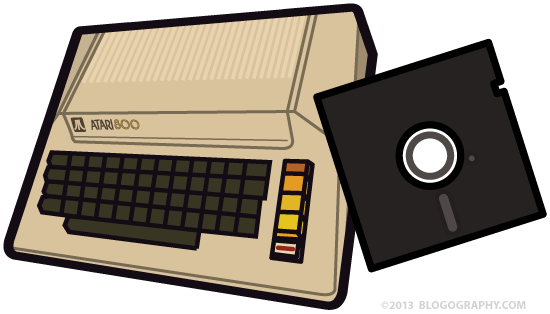
I drew this Atari 800 for the cover of Kevin Savetz's terrific book, Terrible Nerd!
And now I think I'll have a beer and reminisce about the good ol' days when I was a kid and the Sears Christmas Catalog was my world.
Much like Apple.com is now.
 One of the projects I worked on this morning required that I access some old design files from 1996. And while 15 years may not seem like a lot of time in the grand scheme of things, in "computer years" it's positively ancient. This poses a number of problems.
One of the projects I worked on this morning required that I access some old design files from 1996. And while 15 years may not seem like a lot of time in the grand scheme of things, in "computer years" it's positively ancient. This poses a number of problems.
The first problem is that the files were on an Iomega JAZ disk. This is a hard disk cartridge drive that was discontinued almost a decade ago. Fortunately, I have one of these drives... and it still works.
The second problem is that a JAZ drive uses a SCSI interface to connect to a computer. Apple hasn't had SCSI ports on any of their machines since 1999. Fortunately, I also have an old Power Mac which can handle a SCSI peripheral... and it still works.
The third problem is also the biggest. SCSI sucks ass. It never worked very well, and just getting a drive to mount can be a long and frustrating experience... back in the 1990's. Today it can be almost impossible. The drivers are incredibly old, and so the OS you run it on also has to be old. Needless to say, there's no technical support. Fortunately, after hours of goofing around... I got it to work.
What a wake-up call this has been.
Legacy format obsolescence happens all the time. 8-inch and 5-1/4-inch floppy disks were replaced by 3-1/2-inch floppy disks. Floppy disks were replaced by CDs and ZIP disks. ZIP disks were replaced by DVDs. CDs and DVDs are being replaced by large-volume hard drives.
Now hard drives themselves are being replaced by solid-state drives.
And it would seem that online "cloud" storage is eventually going to be replacing everything.
Guess it's time to get all my data off of CDs and DVDs. Apple has already eliminated these drives from their MacBook Air and Mac mini machines. I'm betting that MacBooks will lose them any day now. Will the desktop computers be next? Since Apple has distributed their latest OS upgrade online and seems intent on selling their software that way too... I'm guessing yes.
How long until we just plug this stuff directly into our brains? Most people don't seem to be using their heads for much anyway... might as well put them to good use.
 I've been watching the current IBM Jeopardy! Challenge with great interest.
I've been watching the current IBM Jeopardy! Challenge with great interest.
For those not in the know, the game show Jeopardy! has invited its two greatest champions... Ken Jennings and Brad Rutter... to come back for a special tournament where they will match wits with IBM's super-computer, "Watson." It's an interesting challenge, because Watson has to stand on his own... parsing the language of the questions and using an internal database (no internet) to formulate his answers. He then has to physically press a ring-in button, just like a real opponent would...
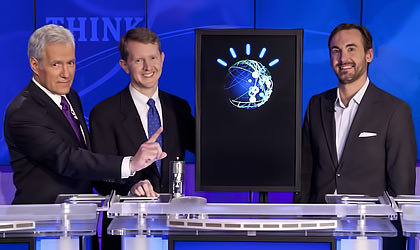
After the first game, Watson is destroying the competition with a $35,754 total over Rutter ($10,000) and Jennings ($4,800)... even though he missed the Final Jeopardy! question. There's another game to go, but it's pretty clear that Watson's immense collection of data and clever programming has given "him" an unbeatable edge.
What I like best about Watson is his "face" which displays a beautiful animated avatar designed by The Hype Framework. It pulses and moves with a lovely array of line-work to reflect his "thinking" in various ways...
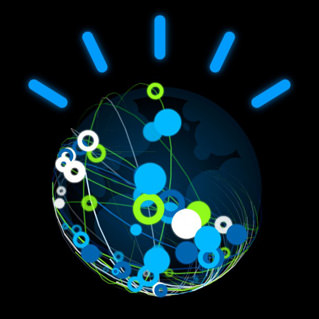
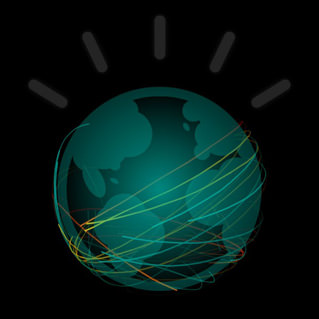
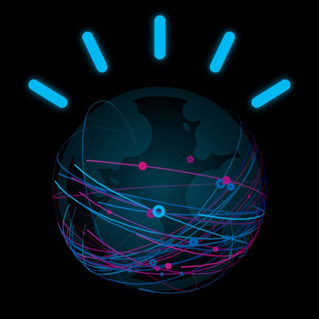
But, as interesting as Watson is at playing Jeopardy, it's OTHER games he might end up playing that worry me. Like... say... GLOBAL THERMONUCLEAR WAR?!?
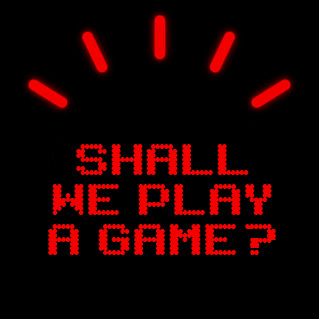
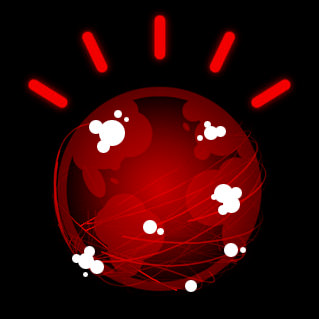
I, for one, welcome our new Jeopardy! Champion Overlord.
 The harsh reality of the Computer Age is that your life is in constant danger. Well, the life that you store on your computer anyway. Your music, your photos, your movies, your work, your writing... it can all disappear in an instant. All it takes is a hard drive crash or theft or fire or an errant sledge hammer and it's all gone.
The harsh reality of the Computer Age is that your life is in constant danger. Well, the life that you store on your computer anyway. Your music, your photos, your movies, your work, your writing... it can all disappear in an instant. All it takes is a hard drive crash or theft or fire or an errant sledge hammer and it's all gone.
Thus, we develop backup strategies to keep our digital lives safe. For me this involves several levels of protection.
My first line of defence is Apple's Time Capsule device, which is constantly and wirelessly backing up all the data from my desktop and laptop Macs...
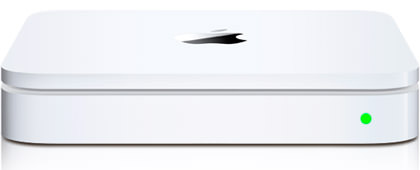
It's a great system, and has saved my bacon more times than I can count. Not just with lost data, but with recovering old versions of documents I need. The problem is that my first Time Capsule died, taking all my backups with it. Apple promptly replaced it, but the paranoia of losing everything AND losing my backup has caused me to go to extraordinary measures.
So now I am using a couple of old external LaCie Porsche drives I had collecting dust on a shelf to make a backup of my backup...
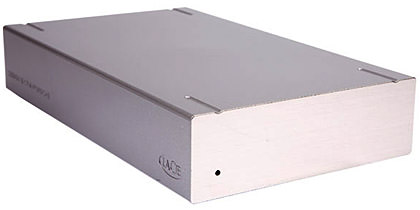
Except the drives are old. Reliable, but old. So I'm using a couple of newer Western Digital"MyBook" drives to backup the backup of my backup and store them off-site...
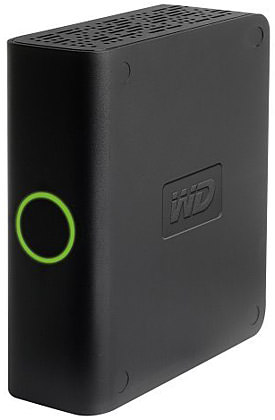
It's a good strategy, but still doesn't seem sufficient. So now I'm storing my most critical files in The Cloud on Amazon's S3 Internet Storage System. Unlike other online backup strategies like "Mozy" or "Carbonite" where your "unlimited" storage is tied to a single computer, Amazon lets you put any files from anywhere on their servers. Sure it costs more, but at least it's backup on my own terms.
And yet... I am still paranoid.
